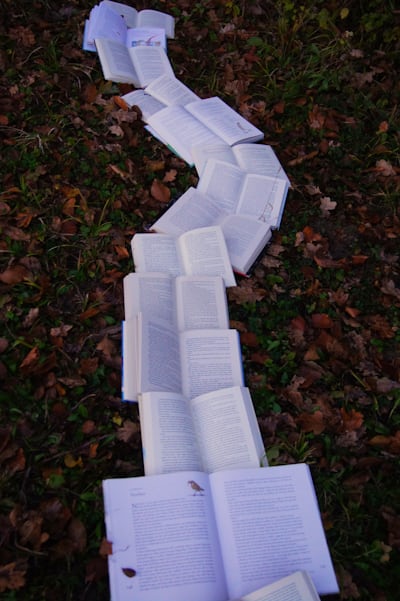Happy 2020 everyone! Compulsive Reader is now in its 22nd year, which is a long time in Internet terms! For those of you who have been with us for a while - thank you - I appreciate your ongoing engagement and camaraderie! For new readers, welcome! This month we have a terrific round up of literary news including Waterstones Book of the Year, The Diagram Oddest Book Title, The Max Ritvo Poetry Prize and more, along with another dozen new reviews like The Girl in the Mirror by Jenny Blackford, The Weekend by Charlotte Wood, and Ivory Apples by Lisa Goldstein, as well as our podcast interview with Jenny Blackford, and Q&As with David Puretz, Douglas Cole and Sybil Baker. Of course we have giveaways too. If you’re a subscriber a copy is on its way to your inbox now. If not, sign up here: http://www.compulsivereader.com. You can also check it out at our online archive:
http://www.compulsivereader.com/sendpress/email/?sid=MA&eid=MTQ4MTI
Tuesday, December 31, 2019
Compulsive Reader Newsletter for Jan is out
Labels:
#bookreviews,
#compulsivereader
Monday, December 2, 2019
Compulsive Reader News for Dec is out
 The December Compulsive Reader Newsletter has gone out now and should be in your inbox now or very soon. This month we have interviews with Three Dollars’ Elliot Perlman, Arachne Press’ Cherry Potts, Emerald City’s Brian Birnbaum, The Frugal Book Promoter’s Carolyn Howard-Johnson (Carolyn and I are long time collaborators as well), Son of the Sea, Daughter of the Sun’s Marc Graham, and a bunch of new reviews including The Year of the Monkey by Patti Smith, Creature by Rosalee Kiely, White Tears/Brown Scars by Ruby Hamad, and plenty more, along with a round-up of literary news, and two fabulous new site giveaways. If you haven’t gotten yours yet, you can check it out here: View CR News in your browser
The December Compulsive Reader Newsletter has gone out now and should be in your inbox now or very soon. This month we have interviews with Three Dollars’ Elliot Perlman, Arachne Press’ Cherry Potts, Emerald City’s Brian Birnbaum, The Frugal Book Promoter’s Carolyn Howard-Johnson (Carolyn and I are long time collaborators as well), Son of the Sea, Daughter of the Sun’s Marc Graham, and a bunch of new reviews including The Year of the Monkey by Patti Smith, Creature by Rosalee Kiely, White Tears/Brown Scars by Ruby Hamad, and plenty more, along with a round-up of literary news, and two fabulous new site giveaways. If you haven’t gotten yours yet, you can check it out here: View CR News in your browserIf you aren’t a subscriber, just pop over to http://www.compulsivereader.com and sign up. It’s free - and I only send out one newsletter a month. Happy reading!
Labels:
books,
compulsivereader,
reviews
Thursday, October 31, 2019
CR Newsletter for November
The November Compulsive Reader Newsletter has just gone out and should be in your inbox now or very soon. This month we have reviews of new books by Oliver Smuhar, Adrian Koesters, Sarah Myles (and do check out our interview with Sarah here: Sarah Myles on The Wolf Hour), Loisa Fenichell, Susan Taylor Meehan, our own reviewer par excellence Ruth Latta, Malcolm Gladwell, and Elayne Klasson. We also have interviews with C B Anderson, Tantra Bensko, C R Richards, and Lois Hermann, and of course the usual extensive round-up of literary news, and two new site giveaways (Do please enter those - we generally only get about 20% of you entering the comps so odds are good!).
If you haven’t gotten yours yet, you can check it out here: View CR News in your browser
If you aren’t a subscriber, just pop over to http://www.compulsivereader.com and sign up. It’s free - and I only send out one newsletter a month. Happy reading!
If you haven’t gotten yours yet, you can check it out here: View CR News in your browser
If you aren’t a subscriber, just pop over to http://www.compulsivereader.com and sign up. It’s free - and I only send out one newsletter a month. Happy reading!
Labels:
books,
compulsive reader,
reviews
Sunday, October 13, 2019
Poem (As the cat)
We’re just beginning week 6 (the beats!) of the wonderful annual 10 week session on modern experimental US poetry (ModPo). William Carlos Williams (affectionately known as WCW) is actually covered in week 3 and though I feel like I have an intimate knowledge of WCW’s work, once again, ModPo has given me a poem to work with that I’ve not read before: “Poem (As the cat)”. We wrote our second essays in week 4, and critiqued others (a pleasurable activity that always yields new insights) through week 5. The full text of the poem follows:
As the cat
climbed over
the top of
the jamcloset
first the right
forefoot
carefully
then the hind
stepped down
into the pit of
the empty
flowerpot
Here’s my essay :-)
William Carlos Williams’ (WCW) “As the cat” takes the form of a single sentence. The poem follows the progression of a cat as it climbs over a cupboard into an empty flowerpot. The poem uses simple prosaic language, and creates a clear visual. The poem is spare in form, and free of extraneous words, however, this is not a static poem, and there are subtle, but deliberate choices that open the poem to interpretations that belie its apparent simplicity.
“As the cat” is structured to flow in soft, cat-like steps of 3 and 4 syllable lines. This is a cat on the move. The poem opens with the word “As”, which appears to be a conjunction, implying that something additional is happening concurrently with the cat’s descent, though there is nothing provided for comparison. “Then” is the natural companion to “As”, providing the poem’s turn in the moment when the cat changes direction from up to down, almost in a breathlike motion: the stepping up being an inward breath and the stepping down being exhalation.
Many of WCW’s word choices are unusual. This is not any cat but “the cat”. This implies intimacy with the reader. We are meant to know that this is a particular cat, most likely one that belongs to the speaker. It could be a metaphorical or real cat, but it is a cat with agency. It takes the deliberate action of climbing, which involve effort, then it steps down, another act of effort. No human involvement is happening here, other than in the observation, which creates an observer effect, fixing the cat in its motion or arc: deliberately moving over and then down. The jamcloset hints at a similar type of industry, that of jam-making (plum jam perhaps?), though we have no indication whether the closet is full or empty, though we know it must have contained jam because otherwise it would not be called a jamcloset – an unusual word that in assuming the reader will understand, also creates intimacy.
The word “pit” is also unusual here. Flowerpots are normally not excessively deep, and to call their interior a “pit”, particularly in conjunction with “empty” implies a kind of meaninglessness. This is more than just a visual image, but rather it’s an image of desolation that hints at death. There is a sense in the construction of this poem that by fixing the cat in this Sisyphean activity of climbing over the jamcloset and into the flowerpot, we are in fact keeping the cat in this state of agency, and thereby somehow cheating death. Of course the poem leaves this kind of extended interpretation solely to the reader. It merely provides a series of steps, rhythms, particular word choices, and the image itself, but by focusing such intense concentration on a single, ordinary, moment in time, the nature of that concentration creates this transcendence. This seems to me to be the very essence of the Imagist ideal.
As the cat
climbed over
the top of
the jamcloset
first the right
forefoot
carefully
then the hind
stepped down
into the pit of
the empty
flowerpot
Here’s my essay :-)
William Carlos Williams’ (WCW) “As the cat” takes the form of a single sentence. The poem follows the progression of a cat as it climbs over a cupboard into an empty flowerpot. The poem uses simple prosaic language, and creates a clear visual. The poem is spare in form, and free of extraneous words, however, this is not a static poem, and there are subtle, but deliberate choices that open the poem to interpretations that belie its apparent simplicity.
“As the cat” is structured to flow in soft, cat-like steps of 3 and 4 syllable lines. This is a cat on the move. The poem opens with the word “As”, which appears to be a conjunction, implying that something additional is happening concurrently with the cat’s descent, though there is nothing provided for comparison. “Then” is the natural companion to “As”, providing the poem’s turn in the moment when the cat changes direction from up to down, almost in a breathlike motion: the stepping up being an inward breath and the stepping down being exhalation.
Many of WCW’s word choices are unusual. This is not any cat but “the cat”. This implies intimacy with the reader. We are meant to know that this is a particular cat, most likely one that belongs to the speaker. It could be a metaphorical or real cat, but it is a cat with agency. It takes the deliberate action of climbing, which involve effort, then it steps down, another act of effort. No human involvement is happening here, other than in the observation, which creates an observer effect, fixing the cat in its motion or arc: deliberately moving over and then down. The jamcloset hints at a similar type of industry, that of jam-making (plum jam perhaps?), though we have no indication whether the closet is full or empty, though we know it must have contained jam because otherwise it would not be called a jamcloset – an unusual word that in assuming the reader will understand, also creates intimacy.
The word “pit” is also unusual here. Flowerpots are normally not excessively deep, and to call their interior a “pit”, particularly in conjunction with “empty” implies a kind of meaninglessness. This is more than just a visual image, but rather it’s an image of desolation that hints at death. There is a sense in the construction of this poem that by fixing the cat in this Sisyphean activity of climbing over the jamcloset and into the flowerpot, we are in fact keeping the cat in this state of agency, and thereby somehow cheating death. Of course the poem leaves this kind of extended interpretation solely to the reader. It merely provides a series of steps, rhythms, particular word choices, and the image itself, but by focusing such intense concentration on a single, ordinary, moment in time, the nature of that concentration creates this transcendence. This seems to me to be the very essence of the Imagist ideal.
Labels:
@modpopenn,
#ModPo,
poetry
Monday, September 30, 2019
Compulsive Reader Newsletter October
 |
| Photo by Laura Kapfer on Unsplash |
If you aren’t a subscriber, drop by http://www.compulsivereader.com and sign up!
Labels:
books,
compulsive reader,
newsletter
Saturday, September 28, 2019
This Is My Letter To The World
It’s ModPo time! This is the 7th year I’m dipping into the fabulous 10 week MOOC (Massive Open Online Course) on modern experimental US poetry. Emily Dickinson is kind of like the course mascot. It begins with her and she is referenced (along with her partner-in-crime and opposite from a Yin Yang point of view, Walt Whitman) throughout the course. The course always has new material and is always fresh and a little different but every year we are encouraged (it’s always optional, like everything in this exceptional course) to write and comment on four essays through the 10 weeks of the course. The first is always a close reading of an Emily Dickinson poem. This year’s is a poem that I haven’t read before (Dickinson’s output is pretty extensive for someone who never published during her life) ostensibly titled “This Is My Letter To The World”. The full text of the poem is:
Emily Dickinson’s “This is my letter to the World” has hints of her more famous poem “I dwell in Possibility”, with its opening word “This” conjuring “For Occupation – This–“ and the use of the word “Hands”, which are no longer “narrow”, but vast, unknown, and potentially plural. “This” refers to the poem itself – the poet's “letter to the world”, a gift to the future reader. The word that opens the poem becomes codified as “letter” which is both a metaphor for the poe, and a synecdoche for the full collected output of the poet. The use of capitalisations creates emphasis – not just on the first letter of each stanza, but of words that seem to stand on their own: “World”, “Me”, “News”, “Nature”, “Majesty”, “Message”, “Hands”, “Love”, “Her”, “Sweet”, which produces a sonic heft that adds to the power of these words and provides a focus or downward beat which overrides the iambic singsong of the more familiar rhythm of the poem.
The poem uses formal structure: an iambic metre with alternating lines of 8 and 6 syllables, two quatrains; and the rhyming of alternate stanzas: Me, Majesty and see. Although the metre doesn’t change throughout the poem, the poem is enriched by the non-rhyming lines between the rhyming ones, by the repetitions of the word “Me”, “tender” and “tenderly”, and by the rolling alliteration throughout: never/News/Nature; Me/Majesty/Message; This/That/The. Dickinson’s characteristic dashes and shortish lines give the work a forward thrust and energy, reminding us that this is a modern poem that is reaching towards the future, trusting in posterity as a means of immortality, of connection and almost mystic communication.
There is also a sense that the poem itself is a conduit for “Nature” – the “simple news”. In this sense, “This is my letter to the World” is a meta poem, about the way poetry works its magic, creating a connection between the writer and an unknown reader: “Hands I cannot see”. As readers, we are drawn into the poem as recipient, but also as the critic with the power to judge harshly. We are humbly asked to equate the poem with the natural world and possibly in the context of its time and “Judge tenderly”. The poet is being aligned with nature; a way of perceiving. The poem is therefore both intimate – a warm confidence to a single reader asked to read with empathy and care, and grand – hinting at an Ars Poetica – the justification of poetry and the power it has to transcend time and space. The poem creates a dichotomy between male (the reader perhaps – as countrymen) and female – the “Her” who is both poet and [mother]“Nature” – the bigger, more primal force (“Majesty”), in spite of its “tender” quality. Though seemingly simple, “This is my letter to the World” has the Dickinsonian twist in which it appears to grow larger than the confines of its tidy structure and speak of something large, primal, powerful and essential in the act of creating poetry, which is both humble and majestic.
This is my letter to the world,Following is my close reading essay.
That never wrote to me,--
The simple news that Nature told,
With tender majesty.
Her message is committed
To hands I cannot see;
For love of her, sweet countrymen,
Judge tenderly of me!
Emily Dickinson’s “This is my letter to the World” has hints of her more famous poem “I dwell in Possibility”, with its opening word “This” conjuring “For Occupation – This–“ and the use of the word “Hands”, which are no longer “narrow”, but vast, unknown, and potentially plural. “This” refers to the poem itself – the poet's “letter to the world”, a gift to the future reader. The word that opens the poem becomes codified as “letter” which is both a metaphor for the poe, and a synecdoche for the full collected output of the poet. The use of capitalisations creates emphasis – not just on the first letter of each stanza, but of words that seem to stand on their own: “World”, “Me”, “News”, “Nature”, “Majesty”, “Message”, “Hands”, “Love”, “Her”, “Sweet”, which produces a sonic heft that adds to the power of these words and provides a focus or downward beat which overrides the iambic singsong of the more familiar rhythm of the poem.
The poem uses formal structure: an iambic metre with alternating lines of 8 and 6 syllables, two quatrains; and the rhyming of alternate stanzas: Me, Majesty and see. Although the metre doesn’t change throughout the poem, the poem is enriched by the non-rhyming lines between the rhyming ones, by the repetitions of the word “Me”, “tender” and “tenderly”, and by the rolling alliteration throughout: never/News/Nature; Me/Majesty/Message; This/That/The. Dickinson’s characteristic dashes and shortish lines give the work a forward thrust and energy, reminding us that this is a modern poem that is reaching towards the future, trusting in posterity as a means of immortality, of connection and almost mystic communication.
There is also a sense that the poem itself is a conduit for “Nature” – the “simple news”. In this sense, “This is my letter to the World” is a meta poem, about the way poetry works its magic, creating a connection between the writer and an unknown reader: “Hands I cannot see”. As readers, we are drawn into the poem as recipient, but also as the critic with the power to judge harshly. We are humbly asked to equate the poem with the natural world and possibly in the context of its time and “Judge tenderly”. The poet is being aligned with nature; a way of perceiving. The poem is therefore both intimate – a warm confidence to a single reader asked to read with empathy and care, and grand – hinting at an Ars Poetica – the justification of poetry and the power it has to transcend time and space. The poem creates a dichotomy between male (the reader perhaps – as countrymen) and female – the “Her” who is both poet and [mother]“Nature” – the bigger, more primal force (“Majesty”), in spite of its “tender” quality. Though seemingly simple, “This is my letter to the World” has the Dickinsonian twist in which it appears to grow larger than the confines of its tidy structure and speak of something large, primal, powerful and essential in the act of creating poetry, which is both humble and majestic.
Labels:
Emily Dickinson,
poetry
Monday, September 2, 2019
Compulsive Reader September newsletter
 |
| Photo by Jaredd Craig on Unsplash |
http://www.compulsivereader.com/sendpress/email/?sid=MA&eid=MTQ0OTE
If you want to subscribe for free, visit http://www.compulsivereader.com
Labels:
#compulsivereader,
book reviews,
newsletter
Wednesday, July 31, 2019
CR Newsletter for August is now out
The new Compulsive Reader newsletter has just gone out featuring 10 new reviews, 2 hot-off-the-press interviews, a big round-up of literary news and 2 new book giveaways. Some of this month's features include a review of Wendy James' new psychological thriller The Accusation, a lengthy and detailed analysis of Douglas Field's book on James Baldwin, All Those Strangers, a review of Neil McCarthy's new poetry book Stopgap Grace, and much more. Check it out in the archive here:
http://www.compulsivereader.com/sendpress/email/?sid=MA&eid=MTQ0MzU
To subscribe for free and get a copy sent straight to your inbox on the first of each month, visit http://www.compulsivereader.com
http://www.compulsivereader.com/sendpress/email/?sid=MA&eid=MTQ0MzU
To subscribe for free and get a copy sent straight to your inbox on the first of each month, visit http://www.compulsivereader.com
Labels:
#compulsivereader,
#CRNews
Tuesday, July 2, 2019
CR News for July is out
Compulsive Reader newsletter for July is now out. This month’s issue has 3 giveaways (!), along with a bevy of new reviews including, among others, new books by Francine Falk, Allen, Richard James Allen, Esmé Weijun Wang, and Jon Frankel, interviews with Nancy Smiler Levinson and Tara Johnson, the June literary news roundup, and lots more. If you’re a subscriber, the newsletter should already be in your inbox. Or you can check it out here
To become a subscriber visit: http://www.compulsivereader.com
To become a subscriber visit: http://www.compulsivereader.com
Labels:
book reviews,
literature,
newsletter
Friday, May 31, 2019
CR Newsletter for June is out!
June's Compulsive Reader newsletter has just gone out, and as usually is overloaded with literary news (including the Pen/Faulkner, the Women's Prize for Fiction, the Four Quartets, and the Miles Franklin), a bunch of new reviews and interviews including The Book of Dirt by Bram Presser (and don't forget to check out our interview with Bram here:
https://anchor.fm/compulsivereader/episodes/Bram-Presser-on-The-Book-of-Dirt-e3umri), Known by Salt by Tina Mozelle Braziel, The Age of Fibs by Beth Spencer, and of course our very popular giveaways for subscribers (we have 2 this month!). If you missed the newsletter, maybe it is in your junk folder? Or just go here and grab a copy: CR Archive
If you aren't subscribed, you can do so for free here: http://www.compulsivereader.com
Happy reading!
https://anchor.fm/compulsivereader/episodes/Bram-Presser-on-The-Book-of-Dirt-e3umri), Known by Salt by Tina Mozelle Braziel, The Age of Fibs by Beth Spencer, and of course our very popular giveaways for subscribers (we have 2 this month!). If you missed the newsletter, maybe it is in your junk folder? Or just go here and grab a copy: CR Archive
If you aren't subscribed, you can do so for free here: http://www.compulsivereader.com
Happy reading!
Labels:
books,
compulsive reader,
newsletter,
reviews
Wednesday, April 3, 2019
CR Newsletter for April is out!
Hi readers! Our April newsletter has now gone out.
This month’s reviews include The Intimacy of Strangers edited by Philip Porter and Andy Kissane, We Have Been Lucky in the Midst of Misfortune by Sarah Stern, Above an Abyss: Two Novellas by Ryan Masters, Quill of the Dove by Ian Thomas Shaw and many others as well as interviews, news roundup and of course our super-popular book giveaways.
Drop by and check it out in the archive here: http://www.compulsivereader.com/sendpress/email/?sid=MA&eid=MTQyMTg
This month’s reviews include The Intimacy of Strangers edited by Philip Porter and Andy Kissane, We Have Been Lucky in the Midst of Misfortune by Sarah Stern, Above an Abyss: Two Novellas by Ryan Masters, Quill of the Dove by Ian Thomas Shaw and many others as well as interviews, news roundup and of course our super-popular book giveaways.
Drop by and check it out in the archive here: http://www.compulsivereader.com/sendpress/email/?sid=MA&eid=MTQyMTg
Labels:
reviews
Tuesday, March 5, 2019
CR Newsletter for March is out
I have no idea what happened to me in Feb. The newsletter went out, but I forgot to blog about it, or anything else for that matter, but the Newcastle Writers Festival is coming so I’ll have to get my bloggy fingers warmed up. The March issue has now gone out and if you haven’t received it by now, you’re either not subscribed (in which case, go sign up already--it’s free: http://www.compulsivereader.com). We have another great giveaway, a roundup of global literary news, 10 fresh reviews including books by Angela Mitchell, Colin Thiele, Jeffrey Perso and many others, as well as an interview with Judith Skillman, and also a new interview with the fabulous Anne Casey on our CR Talks podcast. If you want to check it out, you can grab a copy here: CR Newsletter March
Labels:
book
Wednesday, January 2, 2019
CR Newsletter for Jan is out
Happy new year readers! Compulsive Reader is now 21 years old! Internet years are like dog years, so I’m very proud of how long CR has been operating and the worldwide network of readers we’ve built over the years. The January newsletter has now gone out with ten fresh reviews including new books by Filip Severin, Michael David Blanchard, Jendi Reiter, David Sklar and many others (we’re now at 2,331 reviews!), a fantastic new giveaway of an autographed copy of With Walt Whitman Himself in the Nineteenth Century, In America by Jean Huets, December’s most exciting literary news roundup, and more. If you’ve missed it, you can grab a copy in the archive here: http://www.compulsivereader.com/sendpress/email/?sid=MA&eid=MTQwMDc
To subscribe, visit: http://www.compulsivereader.com
To subscribe, visit: http://www.compulsivereader.com
Subscribe to:
Comments (Atom)









